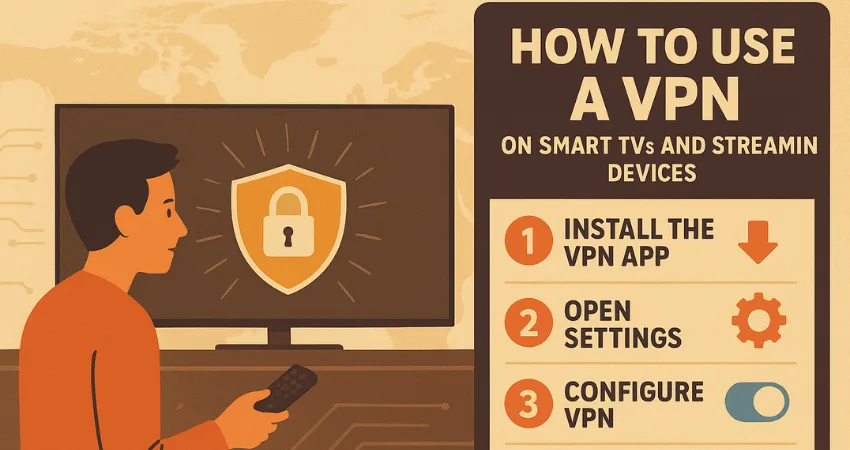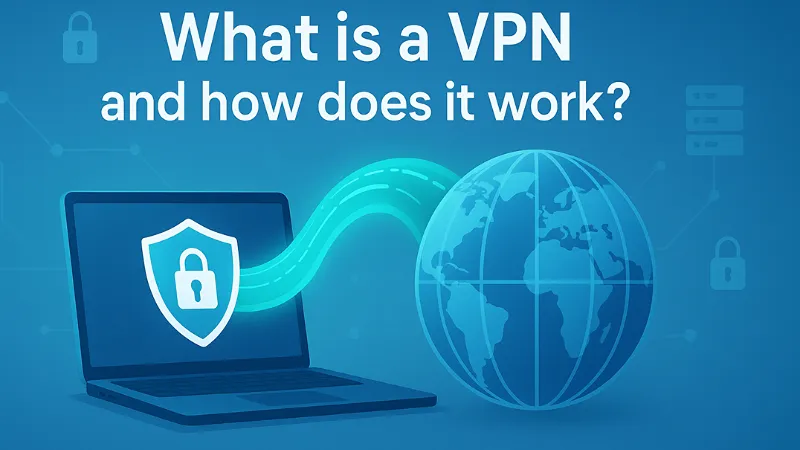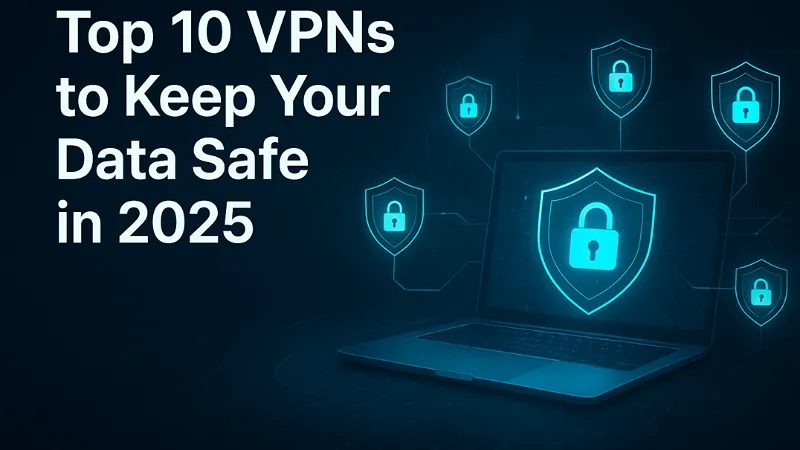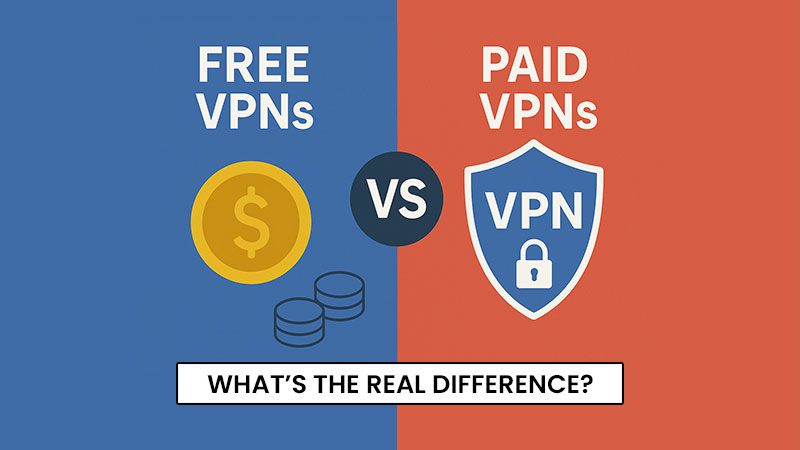In today’s hyper-connected world, streaming content on smart TVs and devices is second nature. From binge-watching your favorite shows to accessing international sports events, smart TVs have revolutionized home entertainment. However, this convenience comes with challenges. Geo-restrictions often limit access to content based on your location, while ISPs may throttle your connection during peak hours, leading to buffering and reduced quality. Moreover, your viewing habits and personal data can be tracked by advertisers and third parties, compromising your privacy. Using a VPN (Virtual Private Network) has become important to overcome these hurdles. For anyone looking to unlock a truly open internet, learning how to use a VPN on smart TVs and streaming devices is a important step. A VPN not only helps you bypass geo-blocks and maintain consistent streaming speeds but also encrypts your data and hides your IP address, ensuring a secure and private viewing experience. This guide walks you through exactly how to use a VPN on smart TVs and streaming devices – securely, legally, and effectively.
Why Use a VPN on Smart TVs and Streaming Devices?
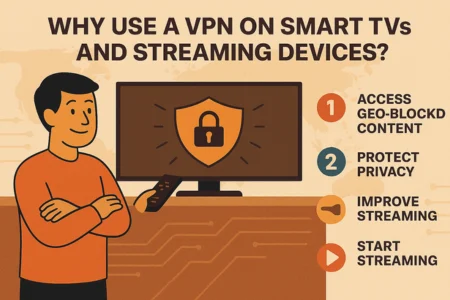
Using a VPN on smart TVs and streaming devices offers a multitude of benefits that go beyond just accessing more content.
- Bypass Geo-Restrictions: Many streaming platforms restrict content based on your geographic location. A VPN allows you to connect to servers in different countries, unlocking international libraries on services like Netflix, Hulu, BBC iPlayer, Disney+, and more.
- Prevent ISP Throttling: Internet Service Providers often slow down your connection during peak usage times, especially when streaming high-definition content. A VPN masks your online activity, making it harder for ISPs to detect and throttle your bandwidth.
- Enhance Privacy: Streaming devices can collect data about your viewing habits, which may be shared with advertisers and third parties. A VPN encrypts your traffic and hides your IP address, ensuring that your personal data remains private.
- Secure Public Wi-Fi: When traveling or staying in hotels, you may rely on public Wi-Fi networks that are vulnerable to cyber threats. A VPN adds a layer of security, protecting your device from hackers and malicious actors.
- Access Censored Content: In some regions, certain streaming services or content may be blocked due to government censorship. A VPN helps you bypass these restrictions and enjoy a free and open internet.
How to Set Up a VPN on Smart TVs
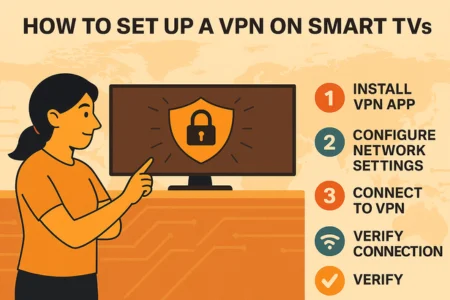
Setting up a VPN on your smart TV can vary depending on the device type and its native support for VPN apps. Whether you’re using an Android TV, Apple TV, Fire Stick, or Roku, there are multiple methods to ensure your streaming experience remains private, unrestricted, and secure. Below are the most effective ways to configure a VPN for your smart TV, including direct app installation, router-level setup, Smart DNS configuration, and sharing VPN connections via Ethernet or mobile hotspot.
Install VPN on a Router
Setting up the VPN on your router covers all devices connected to the network, including your smart TV and streaming devices like Amazon Fire Stick, Roku, or Apple TV.
Steps:
- Choose a VPN provider that supports router installations.
- Access your router’s admin panel.
- Follow the VPN provider’s setup instructions.
- Connect your TV or streaming device to the VPN-enabled network.
Use a VPN-Compatible App on the Streaming Device
Some devices, like Amazon Fire Stick or Android TV, allow you to download and install VPN apps directly.
Steps:
- Open the app store on your streaming device.
- Search for your VPN provider’s app.
- Download and install the app.
- Log in with your account and choose the server location.
- Start streaming securely.
Share VPN Connection from a Laptop or PC
You can also turn your computer into a virtual router by sharing its VPN connection over Wi-Fi or Ethernet.
Steps:
- Install the VPN app on your laptop or PC.
- Connect to a VPN server.
- Share your internet connection via hotspot or wired connection.
- Connect your smart TV or device to this network.
Best VPN Providers for Smart TVs and Streaming Devices
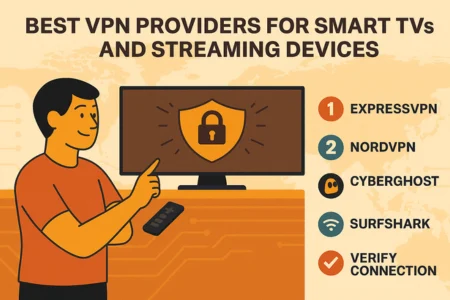
When choosing a VPN, look for:
- Fast servers optimized for streaming.
- Strong encryption and no-logs policy.
- Easy router configuration guides.
- Apps for Android TV, Fire Stick, or other platforms.
Popular VPNs that meet these criteria include:
Is It Legal to Use a VPN for Streaming?
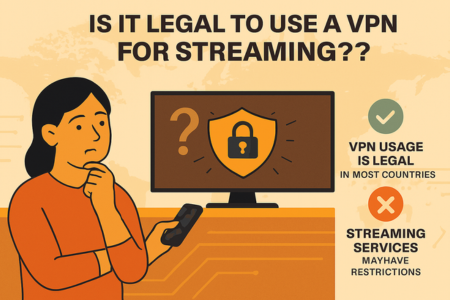
Using a VPN is legal in most countries around the world, including the United States, the United Kingdom, Canada, and much of Europe. VPNs are widely used by individuals and businesses to protect privacy, secure data, and access region-based content for legitimate purposes. However, the legality can vary depending on the country you reside in, as some governments impose restrictions or outright bans on VPN usage.
It’s important to distinguish between the act of using a VPN and the activities you undertake while connected to it. While VPNs themselves are legal, using them to access copyrighted content in violation of licensing agreements or terms of service can lead to consequences, such as account suspension or legal action. Streaming platforms like Netflix, Hulu, and Disney+ have clauses that prohibit VPN usage to access content not available in your region.
Before using a VPN, you should:
- Review the local laws regarding VPN usage in your country.
- Check the terms and conditions of your streaming service to ensure compliance.
- Use VPNs responsibly, respecting intellectual property rights and licensing agreements.
In regions where VPNs are restricted or monitored, using one improperly can result in fines or other penalties. Therefore, always ensure that your use of a VPN aligns with both legal frameworks and ethical standards.
By using a VPN correctly and responsibly, you can safely enjoy streaming content from around the globe while protecting your personal information.
VPN Compatibility – What Devices Can You Protect?
| Device Type | VPN Support Level | Setup Complexity |
|---|---|---|
| Android Smart TVs | Native VPN app support | Easy |
| Apple TV | No native support | Moderate |
| Amazon Fire Stick | VPN apps available | Easy |
| Roku Devices | No native support | Moderate |
| Chromecast | Limited support | Moderate |

